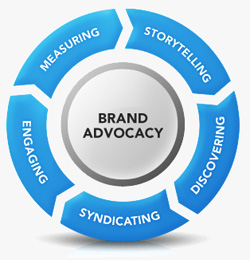Tech Tonics: Jim Manzi, Pragmatic Analytics For Business
A physics and math wonk from MIT, Jim Manzi figured out early in his career that he loved the application of pragmatic, quantitative approaches to solve pesky real-world business problems, including today, challenges faced by life science and healthcare organizations.
Jim’s early life sounds like a Springsteen song, and indeed, he grew up less than 10 feet from E street in Belmar, NJ, where Spingsteen’s band originally practiced and from which it took it’s name. He was good in school but didn’t like it, teaching himself algebra over one summer so he could take a more advanced course in high school. Even so, he quit in 11th grade, and applied to and got accepted at MIT, and started studying there when he was just 16. This is where Jim diverges from the Springsteen narrative.
Jim loved MIT and thrived there, then started a PhD program at Wharton but soon decided he preferred solving “messy, real-world problems” to pursuing the academic life. He eventually found his way to strategy consulting, which he pursued at a firm that pursued this domain in a particularly quantitative fashion. His passion later led him to start his own company, Applied Predictive Technology (APT)– that helped businesses make decisions by conducting well thought out, randomized controlled experiments in the real world business setting — how best to display food in a supermarket, for example.
Jim also explored the intellectual framework for this in a must-read book, Uncontrolled, that not only talks about the value of empirical studies but also discusses the danger of overgeneralizing in the policy setting on the basis of limited data. His rational view of topics from health policy to the environment are a welcome breath of fresh air, deeply rooted in science, yet appropriately cautious about extrapolating results beyond limits of the data, independent of what might be politically attractive or expedient.
Jim eventually sold APT, and more recently started a new company called foundry.ai, which seeks to apply AI to real-world business problems, including healthcare, as he discusses with us on today’s podcast (which David has also written about in his Astounding HealthTech column at The Timmerman Report, here).
Today’s episode is sponsored by Manatt Health—a multi-disciplinary professional services firm that includes a full service law firm and a broad-based strategic business and policy consulting practice to help our clients grow and prosper. Manatt Health supports the full range of stakeholders in transforming America’s healthcare system.
Posted in:
Artificial Intelligence, Audio Podcast, Healthcare, Tech Tonics, Technology


